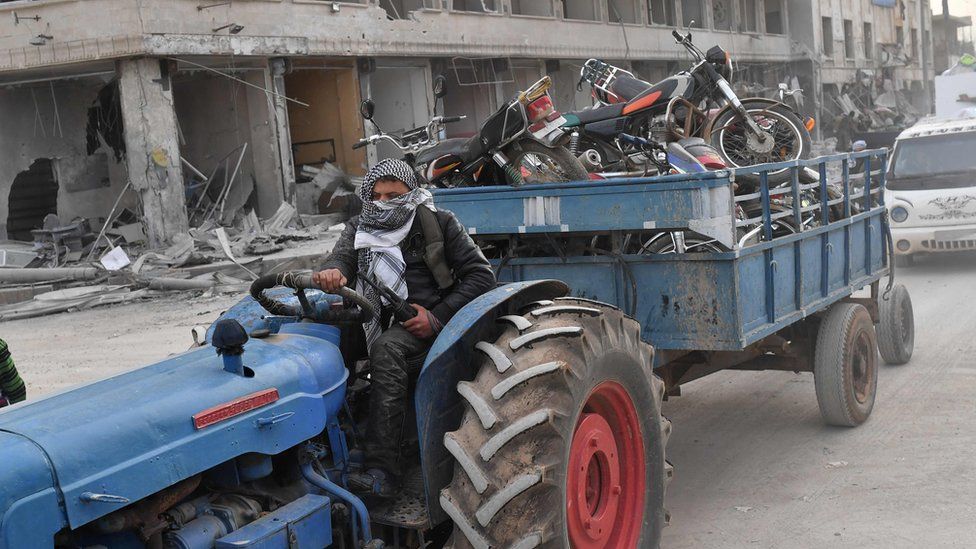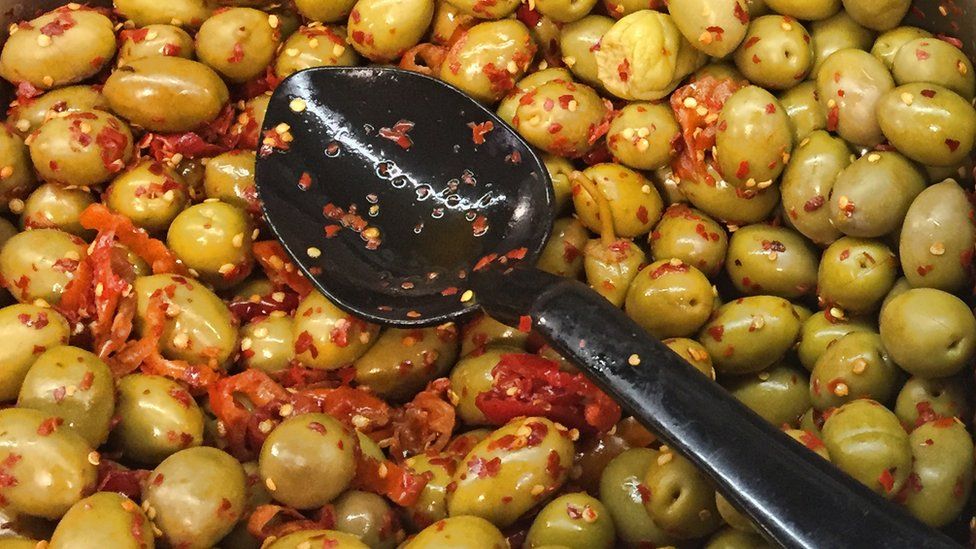Turkish-backed Syrian rebels who seized the northern Syrian city of Afrin from a Kurdish militia on Sunday have been looting properties, reports say.
A UK-based monitoring group said shops and military and government facilities had been raided.
A rebel commander blamed “thieves” for the looting and said a unit had been set up to prevent further incidents.
When Turkey launched a military offensive in northern Syria last January and called it Operation Olive Branch, many dismissed the name as part of a propaganda campaign.
Turkey said it wanted to rid the region of the Syrian Kurdish People’s Protection Units. It has long fought Kurdish insurgents at home and views the fighters in Syria as part of the banned Kurdistan Workers’ Party (PKK) in Turkey.
One year on, it appears the name of the operation has also taken on a more literal meaning.
(Beirut) – Turkey-backed armed groups in the Free Syrian Army (FSA) have seized, looted, and destroyed property of Kurdish civilians in the Afrin district of northern Syria, Human Rights Watch said today. The anti-government armed groups have installed fighters and their families in residents’ homes and destroyed and looted civilian properties without compensating the owners.
AFRIN, Syria (Reuters) – A day after Turkish troops and their Syrian rebel allies seized control of Afrin, a Turkish aid group started distributing relief supplies in the town center on Monday, but residents continued to leave after widespread reports of looting.
Turkish media have welcomed Kosovo’s decision to ban a musical event called “Freedom to Kurdistan”, planned to take place in Pristina on Friday, claiming it aimed to spread propaganda in favour of terrorist organizations that are at war with Turkey.
Kosovo police stopped the event, organized by Kosovo’s “Sabota Social Centre” on Friday, startling many who wondered about the true cause of such an action.
Police on Saturday said only that they had received information about an “unannounced activity” and that the organizers lacked proper permits.
They also said that they had information that unnamed individuals might try to cause an incident during the event “that could result in consequences”.
Police confirmed they brought in two people for questioning after one of them was found with a knife while the other one failed to show an ID.
Kurds are the largest minority group in Turkey and their position is one of conflict with the ‘Turkishness Contract,’ a concept that describes the unspoken convention ensuring the ethnic privilege of Sunni-Turks and the exclusion or assimilation of those who resist Turkification. Kurds have thus experienced oppression since late Ottoman times and throughout the Republican years, up to the present day. This article suggests that the Kurdish media in Turkey have always had to negotiate state oppression by articulating a strategy of resistance to the hegemonic knowledge imposed by the state and reproduced by the mainstream media. They thus reject the Turkification that would be required to abide by the Turkishness Contract. This article’s investigation of the Kurdish media takes place through an exploration of an online news platform, a self-proclaimed ‘voice of the weak.’ The data were collected through semi-structured in-depth interviews with journalists and editors of the platform.




